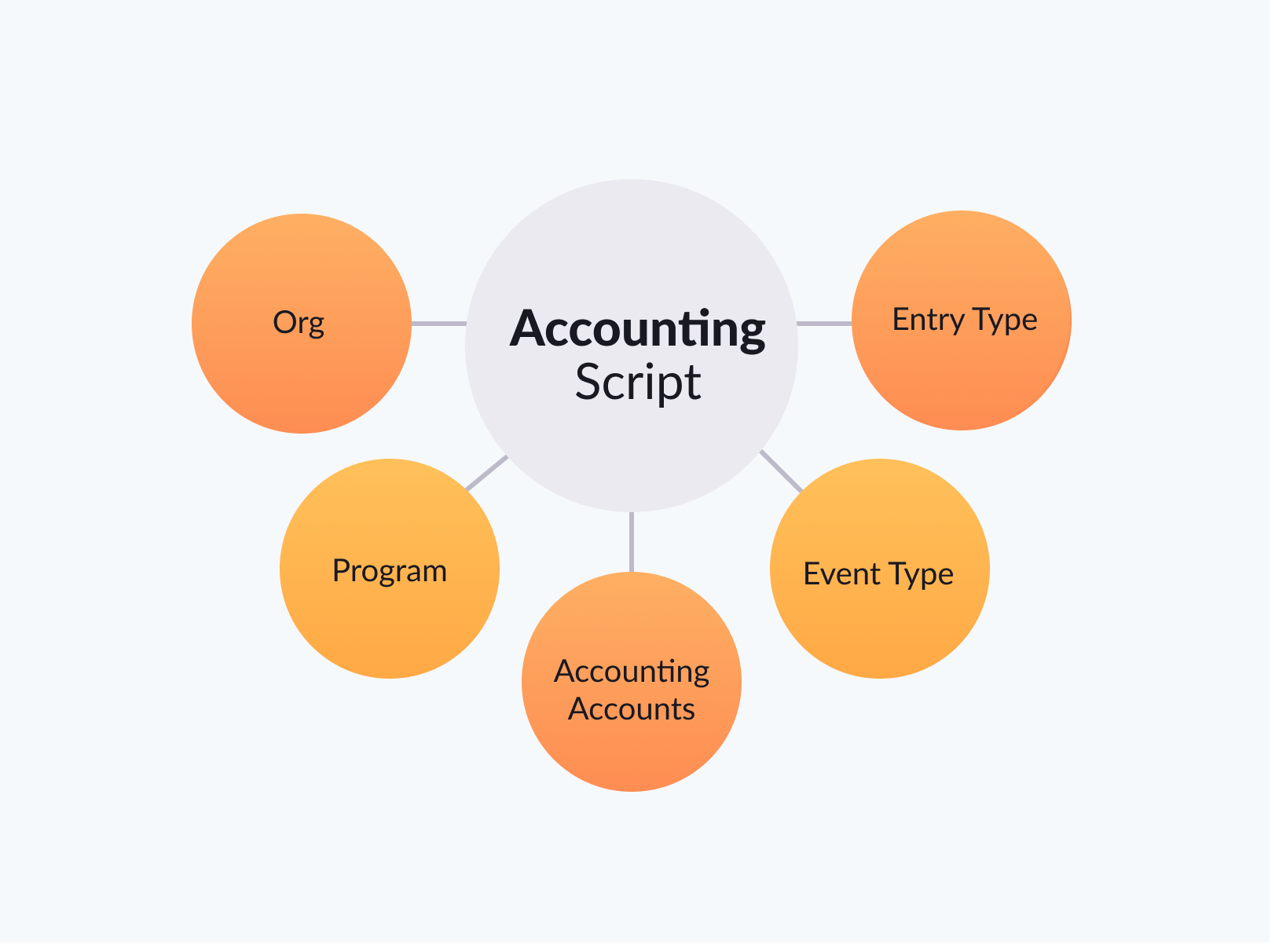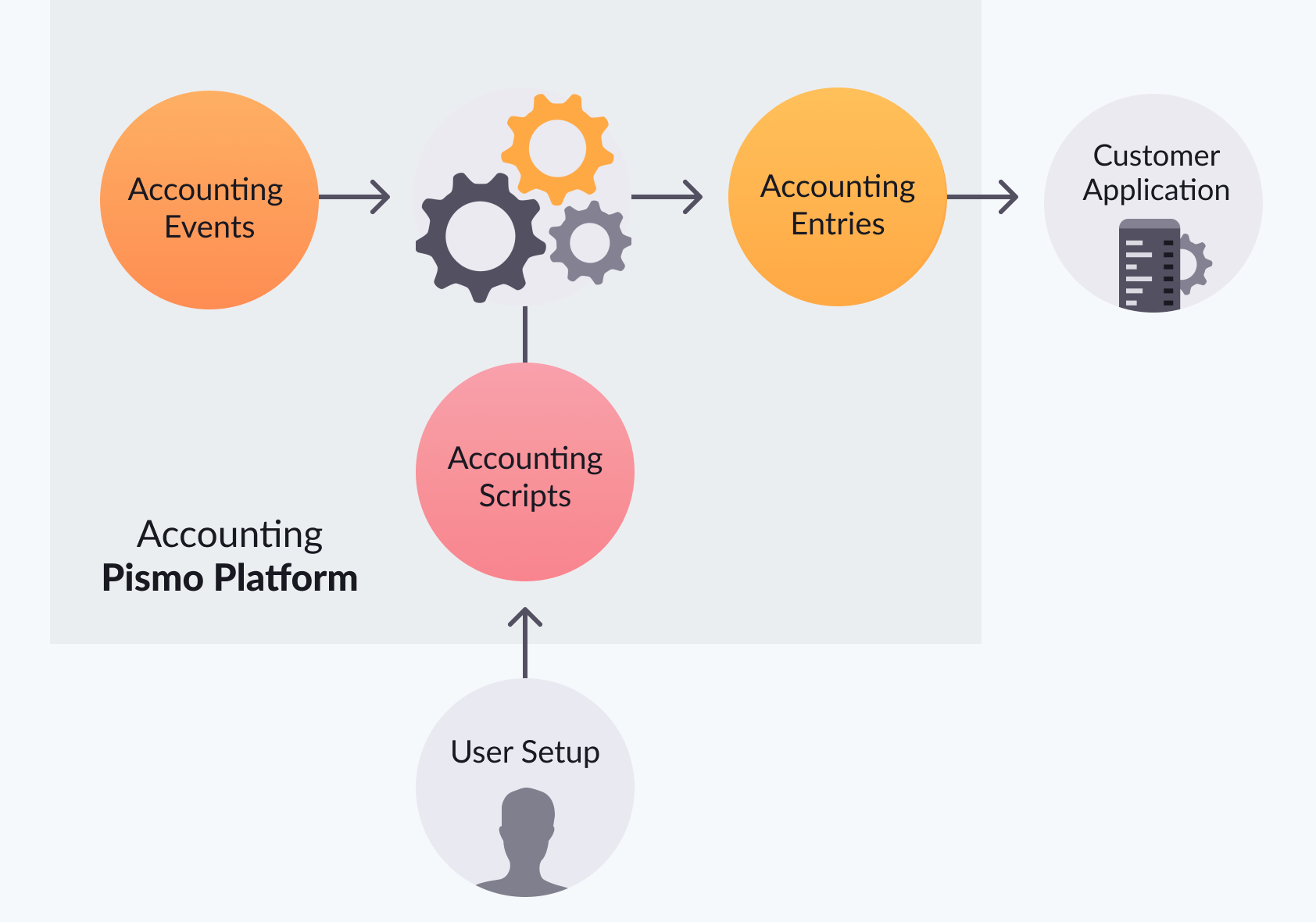Accounting overview
Accounting is the recordkeeping of business and financial transactions. You would then analyze, summarize, and report these transaction records to ensure the company’s activities are achieving their purpose. When you use the Pismo platform, you can perform the accounting after processing a transaction.
Accounting elements in the Pismo platform
Here are the five accounting elements in the Pismo platform:
- Accounting scripts
- Accounting events
- Accounting entries
- Accounting accounts
- Cost centers (optional)
Accounting script
The accounting script is the most important accounting element in the Pismo platform. It represents how the platform generates accounting entries when an event type occurs. For example, it shows which debit account and credit account an amount flows into.
The following shows the usual elements of the accounting script.

The accounting script and its elements
The following table explains these elements.
| Element | Description |
|---|---|
| Org | The company's ID in the Pismo platform. |
| Program | The product that the accounting script belongs to. |
| Accounting Accounts | Accounts that work as debit and credit accounts in the accounting script. |
| Event Type | The type of accounting event that makes the accounting script perform the accounting entries. For example, 112 - amount due date. |
| Entry Type | The type of accounting entry the accounting script produces. For example, 2100 - Installment - Without Interest - DUE DATE; 2101 - Installment - Without Interest - Base II. |
The accounting script allows you to set up for double-entry or single-entry accounting systems.
Accounting accounts
The accounting accounts are the basis of the company’s accounting plan. They represent where the money flows into a company's general ledger. In the Pismo platform, they are set by program. They are informed twice in the accounting scripts, since each accounting script has an account working as a credit and another one as a debit.
For Brazilian companies, you can link the accounting accounts to their corresponding Chart of Accounts for Financial Institutions (COSIF).
Cost centers
Cost centers are entities that cost an organization money or resources. For example, a human resources department or a revenue center. Cost centers are optional in the Pismo platform. Only include cost centers if your organization requires it.
Accounting events
Accounting events are business events in the Pismo platform that impact the company's records. The impact of these events are based on the accounting script's setup.
The Pismo platform has accounting events originated from different business events, such as:
- Financial: purchases and payments.
- Interest rate appropriation.
- Clearing events: confirmation, cancellation, and interchange.
- Time events: due-date or cycle closing date.
- Account events: account opening or limit changes.
- Chargeback events: chargeback opening, confirmation, and rejection.
Accounting entries
Accounting entries are the final product of the accounting events processing. These entries affect the company’s accounting records.
Here are the main attributes of an accounting entry:
- The org identification.
- An event identification that indicates which event produced this accounting entry.
- Debit and credit accounts affected by the amount of money flowing into them.
- The amount of money corresponding to the financial movement in the settlement currency.
- The creation date.
- The entry type identification that gives this accounting entry a description.
The accounting entries are delivered both in a JSON format through an S3 bucket and as a message in a SNS topic.
How Pismo handles accounting
The following shows how the Pismo platform handles these accounting elements and enters them into a customer application.

The journey of how accounting records flow into a customer application
Updated almost 2 years ago